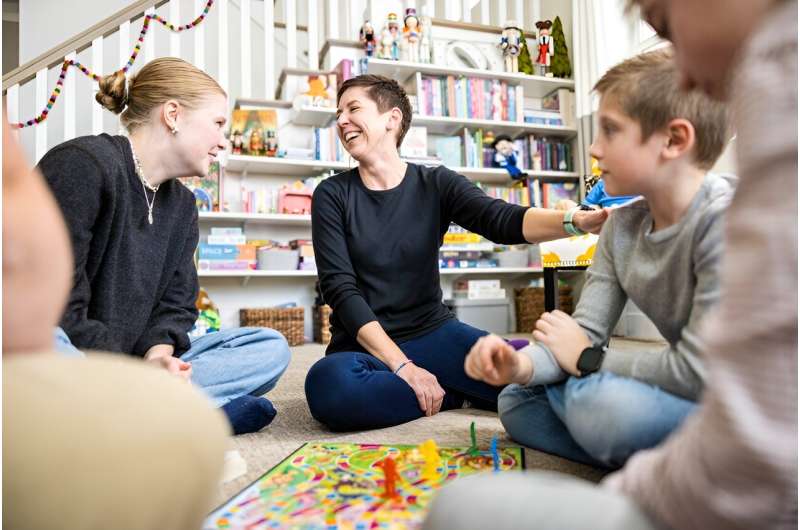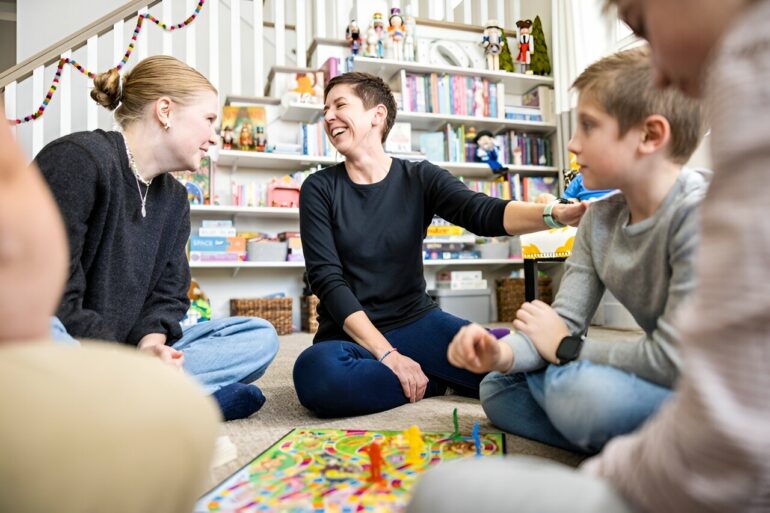Want your teen to graduate from college one day? Focus on strengthening their social networks within and beyond the family, says a new BYU study.
Building “family social capital” during the teen years dramatically boosts an adolescent’s chances of eventually completing college, according to data from two national surveys analyzed by researchers from BYU, North Carolina State University and the National Institute on Aging. Social connectedness had a bigger effect on college enrollment and graduation rates than a family’s socioeconomic status, a high school environment or a student’s high school grades.
“It’s a really hopeful finding because this kind of capital is more accessible than financial capital,” said BYU sociology professor Mikaela Dufur, a co-author of the paper recently published in PLOS One.
“It’s not that easy for a parent to say, ‘Oh, I want my 12-year-old to graduate from college, so I guess I’ll double my income.’ Our research found that investing in family social capital is powerful for all groups, for kids from all class and race backgrounds.”
Families build social capital in a couple of different ways, Dufur said. First, parents form it within the family by bonding with teens and conveying expectations and norms toward their schoolwork, such as by checking in about homework or discussing classes.
Second, families build social capital by developing connections with others in the community, including with the parents of their kids’ friends and with neighbors, coaches or teachers.
“It goes back to the idea that ‘it takes a village to raise a child,'” Dufur said. “Social capital is an academic measurement of your village. Building those relationships surrounds your child with people who may reinforce positive norms and potentially give them resources you couldn’t.”

The research found parents can build social capital by bonding with teens and conveying expectations and norms toward their schoolwork, such as by checking in about homework or discussing classes. © Nate Edwards/BYU Photo
The researchers were particularly excited to observe the durability of family social capital. While previous research has shown that investing in family social capital during adolescence has immediate benefits, theirs was the first study to show that the investment keeps paying off through the college years.
To see how long family social capital endures, they studied outcomes for over 20,000 students who participated in the 1988 National Educational Longitudinal Study and the 2002 Educational Longitudinal Study. The surveys provided data about family relationships, community connection and educational attainment from students in eighth, 10th and 12th grades, then followed up two and eight years after high school graduation.
“More than a family’s money or prior education, family social capital had really strong associations with both going to college and maybe more importantly, finishing college,” Dufur said. “That social capital you made with your family back when you were a teenager, that stretches forward and helps you achieve.”
To ensure that families have the time and resources to build social capital, policymakers can get creative, the researchers suggested.
“These findings prompt the question of whether we as a society are investing sufficiently in families to support their many important tasks,” said co-author Toby Parcel, professor emerita at North Carolina State University. “I worry that we are providing too little support to families in their efforts to prepare the next generation of young people for adult life and productive work.”
Examples of societal changes that could promote family social capital include work policies that encourage family time, urban planning for walkable neighborhoods and school practices that help parents get involved.
The study’s findings have implications for family practices as well. Since families build social capital both within and outside the home, parents who want to invest in their children should be thoughtful about the balance that’s most ideal for their family, Dufur recommended. Involving teens in sports and clubs helps build a wider, deeper social network; on the other hand, children need enough room in their schedule to also connect with their parents.
“Families of all kinds can invest in their children in new ways and see those investments pay off later,” Dufur concluded.
More information:
Mikaela J. Dufur et al, Is social capital durable?: How family social bonds influence college enrollment and completion, PLOS ONE (2024). DOI: 10.1371/journal.pone.0298344
Provided by
Brigham Young University
Citation:
More than money, family and community bonds prep teens for college success: Study (2024, April 5)



